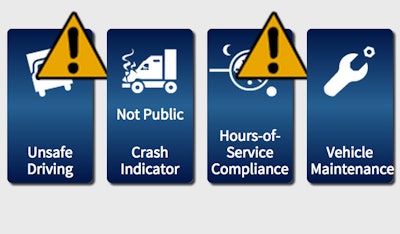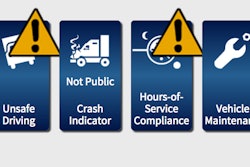
Here’s are measures on tap for the coming session:
Highway bill: After again failing to pass a long-term highway funding bill in its spring and summer session, Congress could still manage to get to the president’s desk this year a multi-year bill to fund road and bridge projects.
And, following the 34th short-term funding patch in less than a decade, the highway bankruptcy clock is again ticking: The 90-day extension passed in late July expires Oct. 31.
The odds-on highway bill favorite now is the Senate’s six-year DRIVE Act bill, which the chamber passed in July with a bi-partisan 65-34 vote. House leaders, however, indicated before the August recess they object to some of the bill’s funding mechanisms.
The House has filed its own DRIVE Act bill, though it’s a much slimmer version. If the House passes a highway bill other than the Senate’s version of the DRIVE Act, the two chambers will have to hammer out any differences and then pass the legislation again.
 The Senate’s bill would remove scores in the Compliance, Safety, Accountability program from public view.
The Senate’s bill would remove scores in the Compliance, Safety, Accountability program from public view.CSA score removal: Included in the Senate’s DRIVE Act is a provision that would remove CSA scores from public view, a measure sought for by the many in the trucking industry since the program took effect in 2010. The bill cleared the Senate in late July with the provision intact. The House still must pass the DRIVE Act, though it likely will produce its own version rather than simply taking up the Senate’s bill. The Senate bill calls for removal of the scores from public view until regulators can fix the program’s flaws.
Hours-of-service ‘restart rollback’ continuation: Both the House and the Senate have taken up bills that would continue the suspension of certain hours-of-service rules, implemented last December. Congress last year put a stay of enforcement on two 2013-implemented regulations: (1) That a driver’s 34-hour restart include two 1 a.m. to 5 a.m. periods and (2) The limitation of the restart’s use to once per week.
The Senate’s 2016 approprations bills would keep the stay of enforcement in place until FMCSA can report to Congress research that shows the rules yield safety benefits.
 The Senate’s DRIVE Act highway bill would permit carriers to test hair samples instead of urine samples to satisfy driver drug screening rules.
The Senate’s DRIVE Act highway bill would permit carriers to test hair samples instead of urine samples to satisfy driver drug screening rules.Driver drug testing: Also included in the Senate’s DRIVE Act highway bill is a change to driver drug screening regulations. It would allow carriers to use hair testing in lieu of urine testing to satisfy federal drug testing requirements.
Under-21 interstate truckers: Lastly, the DRIVE Act would allow states to enter into compacts to allow under-21 CDL holders to cross state lines. While those under 21 are currently allowed to obtain a CDL, they are only allowed to operate trucks intrastate. The bill would change that by establishing a pilot program to allow under-21 CDL holders to drive interstate in the states that enter into agreements to allow it.
Size and weight changes: Both chambers’ DOT-funding bills also would allow 33-foot double trailers, an increase from the current 28-foot maximum.
CSA score disclaimers: If the DRIVE Act does not make it through Congress with the provision to remove CSA scores included, the Senate also has in the works another measure — one to require that all public displays of carrier percentile rankings in CSA’s Safety Measurement System include disclaimers that, per the bill’s text, “[warns] users that [CSA scores] are not necessarily reliable indicators of relative safety performance.” The CSA disclaimer provision is included in the Senate’s 2016 DOT appropriations bill.
 T.F. Scott Darling could be confirmed by the Senate as the next head of the Federal Motor Carrier Safety Administration.
T.F. Scott Darling could be confirmed by the Senate as the next head of the Federal Motor Carrier Safety Administration.Insurance increase: The House’s 2016 DOT-funding bill would block FMCSA from continuing work on a rule to increase the minimum amount of liability insurance required to be held by motor carriers. FMCSA began work on the rule last year.
Confirming Darling as FMCSA chief: President Barack Obama nominated in August a new administrator for the Federal Motor Carrier Safety Administration. T.F. Scott Darling, who’s been running the agency on an acting basis since former Administrator Anne Ferro’s resignation last August, now must be confirmed by the Senate to officially become the agency’s next administrator.











